Colorful Cuenca
Today's steemy offering is a nice crop of photos culled from my recently downloaded facebook data. They were all taken in April of 2014 during a long walk around Cuenca that included a ride on the double-Decker tourist bus. I set these aside because there were using the digital "tilt-shift focus" filter on my camera; I was still playing with the settings, so not all of them were winners, but I chose these for this post mostly for their color. The day I took them was one of those bright but cloudy days that gave everything a saturated quality which I don't know if I could have created on purpose.
El Mirador De Turi
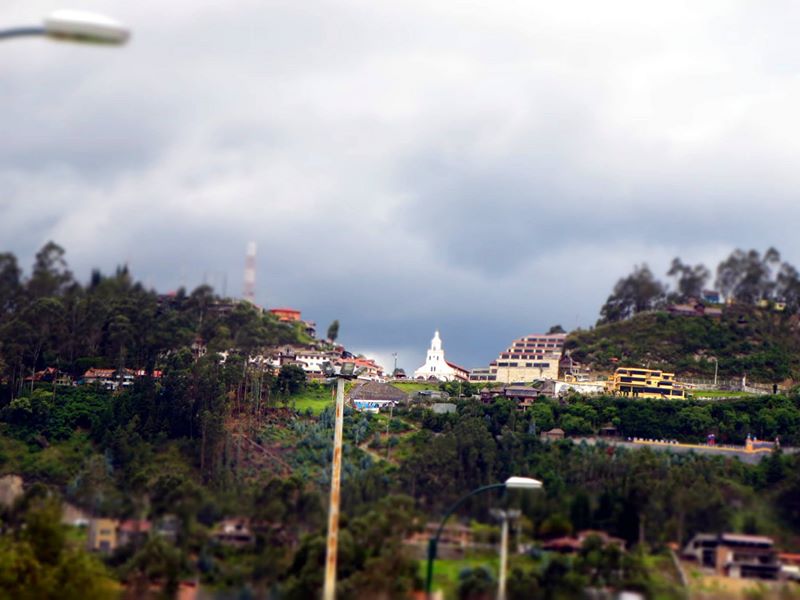
This is the Spanish Colonial church built at the Turi pass that overlooks Cuenca. It was once the most sacred spot to the Cañari, the original culture that built the city of Guapondelig. Later, the Inca came and conquered the area and built Tumipampa, the northern capital of Incan Empire. That lasted less than a hundred years and the city suffered a civil war just before Spanish conquistadors arrived looking for El Dorado. Where conquistadors went, catholic priest followed, and as was their habit during the "discovery" era of the New World, the first thing they did was ask where the most sacred site in the area was. When the natives all pointed to this spot, the Spanish went and built a church right on top of it.
Murals on Solano
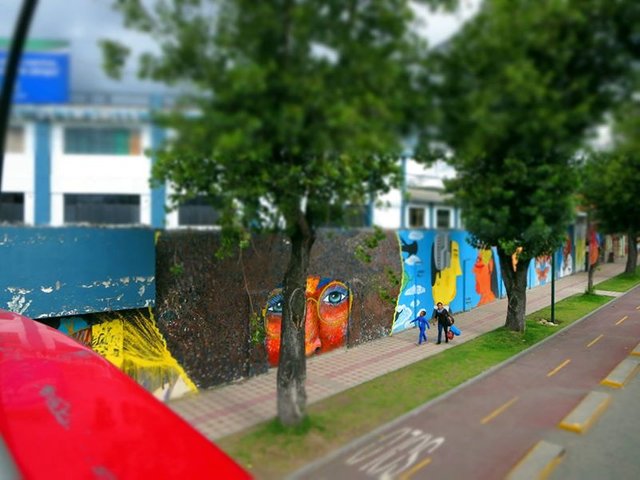
From the same vantage point where we were looking up at the lookout at Turi from Avenida Solano, we look down at some of the colorful murals that line the east side of the street. At first, I was disappointed that the tree is in the shot covering the face, but then looking at it again, it is almost like the face was trying to hide behind it.
Chola Cuencas in Parque Calderón
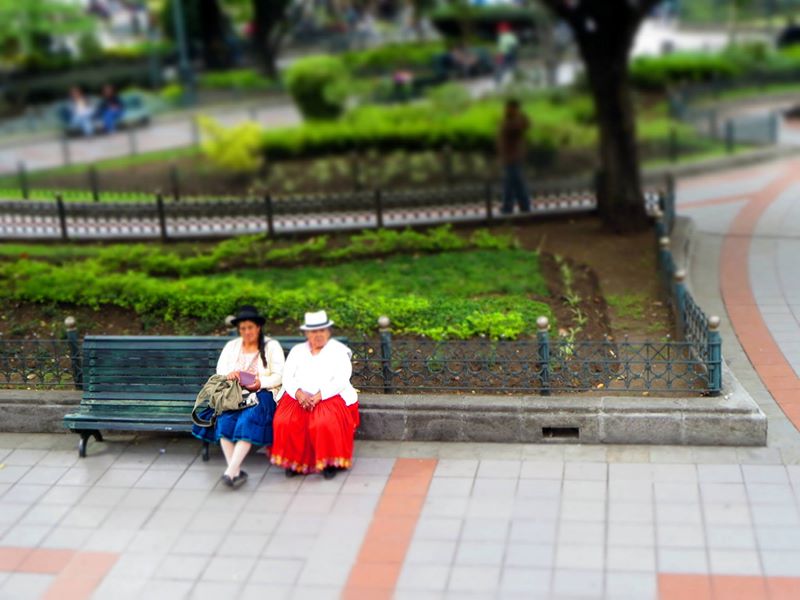
Ladies like these are very common all over Azuay Province and Cuenca. Their skirts and hats signify both status and unique village identity. Cuenca's Old Cathedral also features a Chola Cuencana Madonna holding a baby Jesus.
What Happened to the Gold of El Dorado?
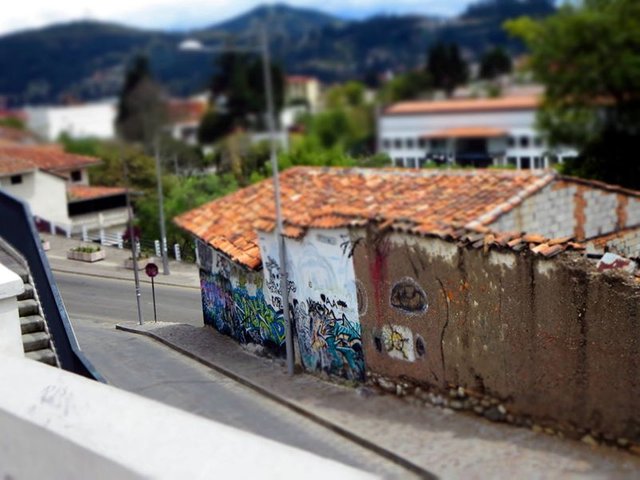
Stories persist that the great Emperor Huayna Capac's Tumipampa, or Tomebamba as it now known, was likely the legendary lost, golden city of El Dorado. However, once conquistadors from Spain arrived following the rumors of the day about a wealthy city with walls literally covered in gold, the civil war between Capac's sons, Huascar and Atahualpa, the administrative governors, warriors, and other Incan 'nationals' and their servants had taken off and seemed to have left little gold behind.
However, rumors of what happened to all of that gold have become legends that still persist to this day, to the point that it effect how all of the old houses are torn down to make way for new construction. There is a saying that Cuenca's gold is within the walls of the homes, which has a quaint metaphorical charm when thought of to mean the people within the homes are the gold of Cuenca; but actually, it can be taken literally too. Many of the homes and buildings of old Cuenca were built using the style observed in the photo above: packed mud-straw-pebbles covered with painted stucco-type facade. As it turns out, the families that originally build those homes would often hide their gold and silver within the walls of the houses as they were being built. So to this day, anytime an old house is taken down for new construction, it can take a crew of four to six guys several weeks to disassemble the frames and slowly break down the old mud walls with hand tools in order to sift through the debris on the not-so-unlikely chance there is literal gold buried within the walls.
Who knows how much gold has been recovered?
A European City Dropped into the Andes
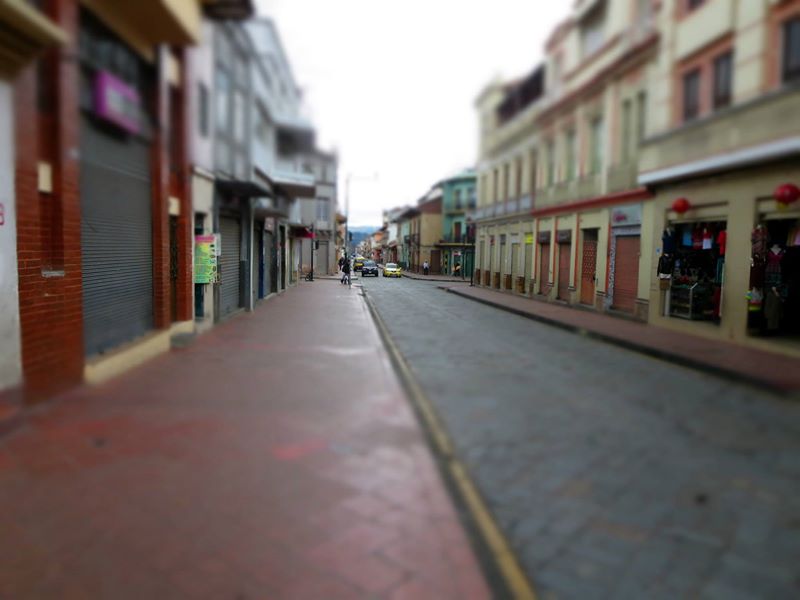
Cuenca's El Centro area was built with narrow streets and sidewalks, giving the impression that it is dense and packed. But much like New Orleans' French Quarter, within most of the buildings are open courtyards, many of which have been covered to protect them from rain.
Parque Victor J. Cuesta
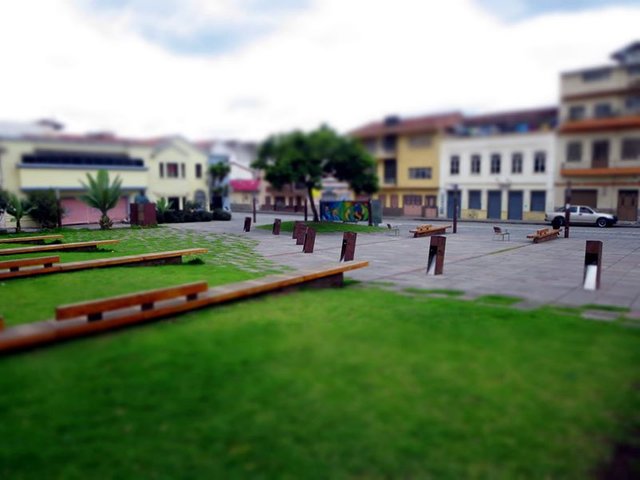
This charming little plaza is normally fully of commuters and the daily comings and goings of a busy downtown intersection. I took this shot on a quiet Sunday afternoon when there was almost nothing happening. Click here to read more information about this park.
Bus Stop Art Project
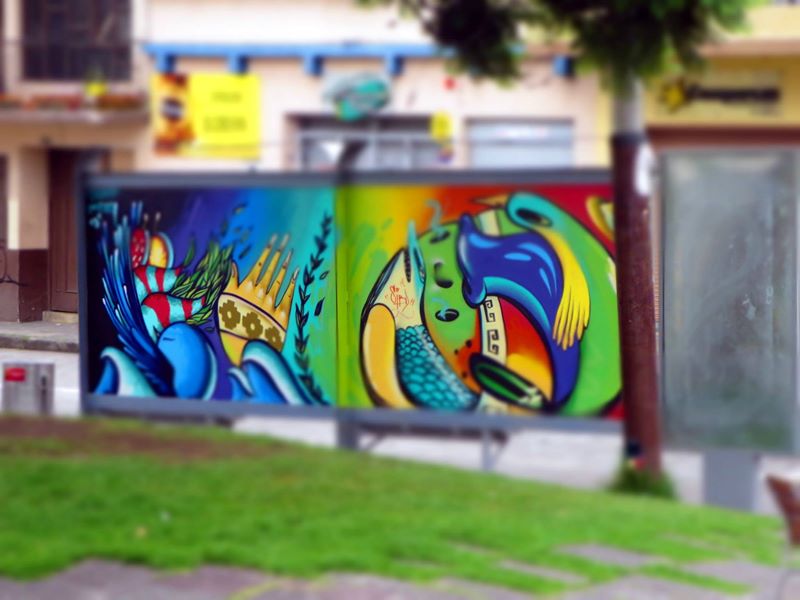
This was also in Parque Victor J. Cuesta. I'm glad I caught much of these because they are not like this anymore. When I took them, we'd only been in the city a few months, so I never learned who the artists who contributed to this project were, but each bus stop bench was colorful and unique.
Rolling Street in El Centro
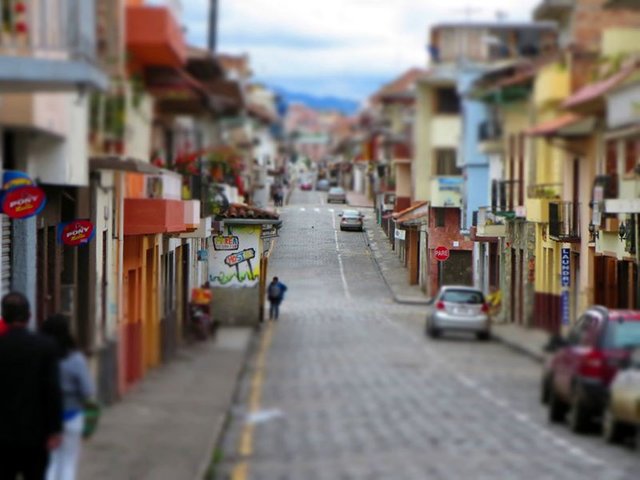
Do you see the one jutting out into the sidewalk on the left? The one with some art on it? There are many buildings like around El Centro begging the question: Were these built after the sidewalk was put in?
Chola Cuenca on 12 de Abril y Av Solano
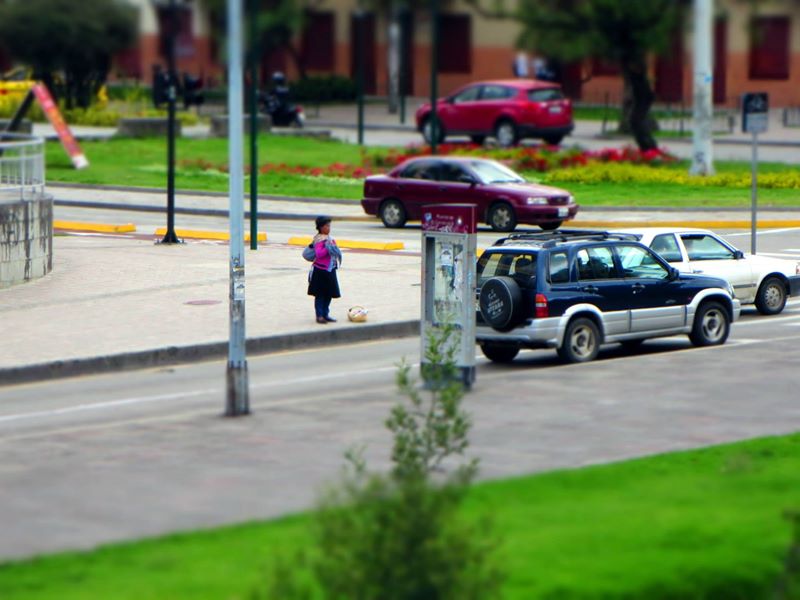
Enough commentary, let's just look at some pretty pictures, shall we?
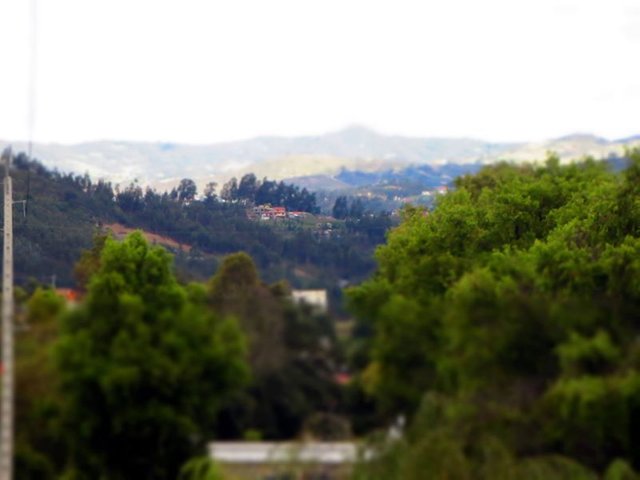
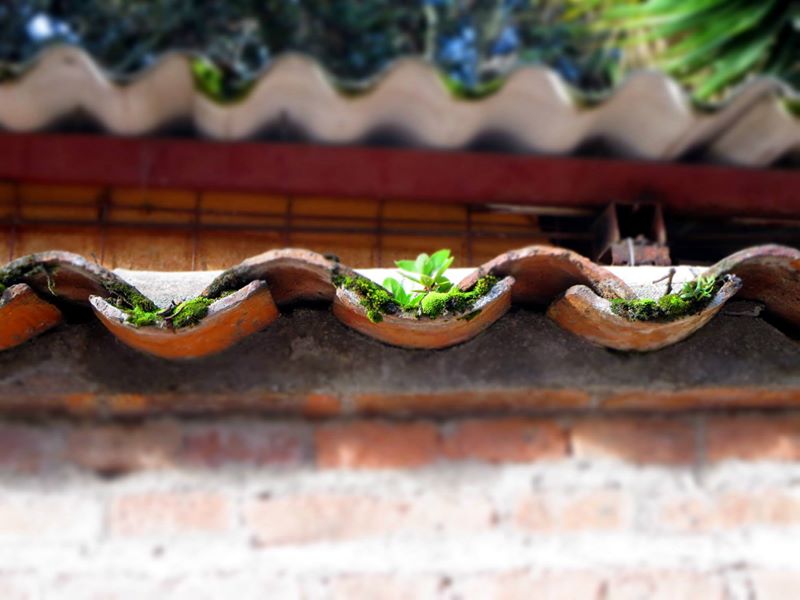
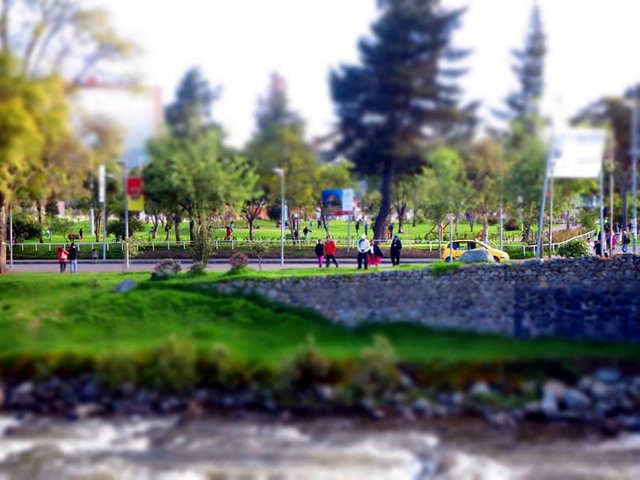
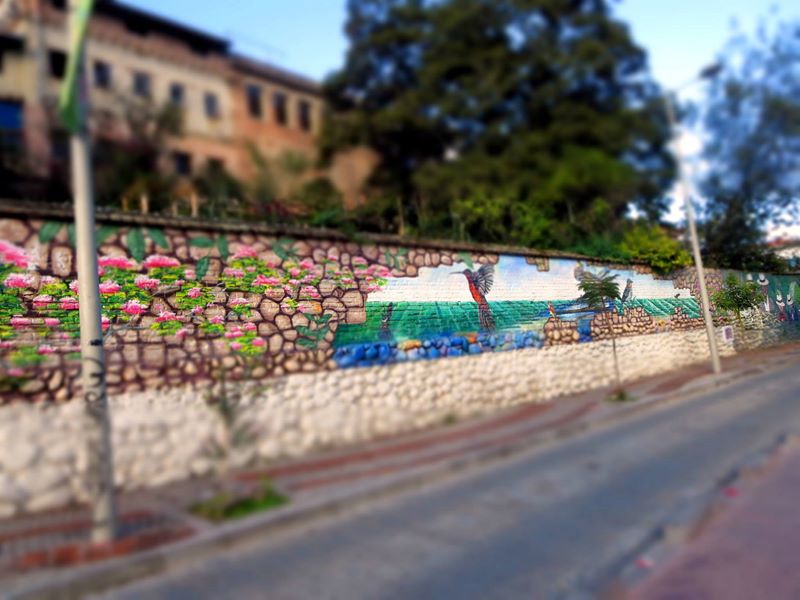
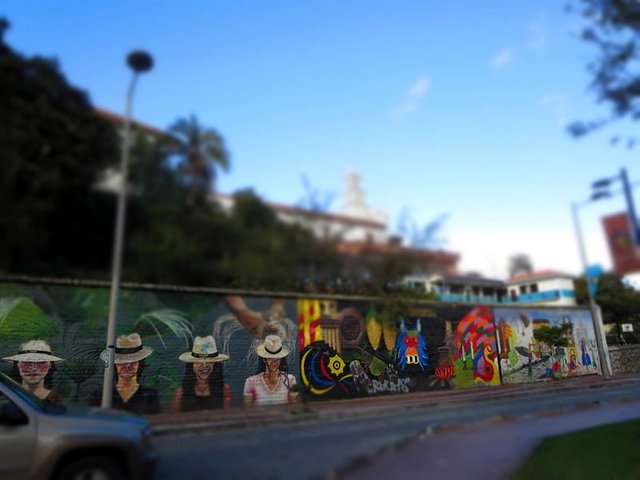
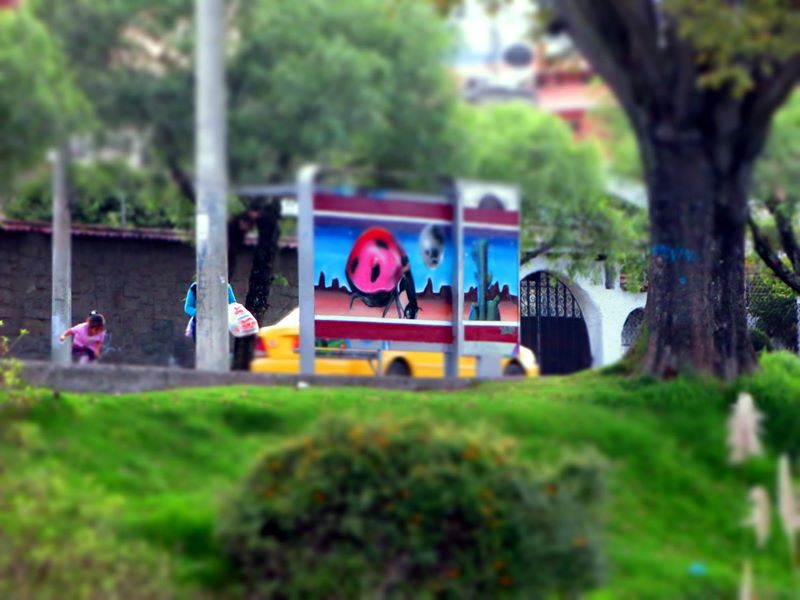
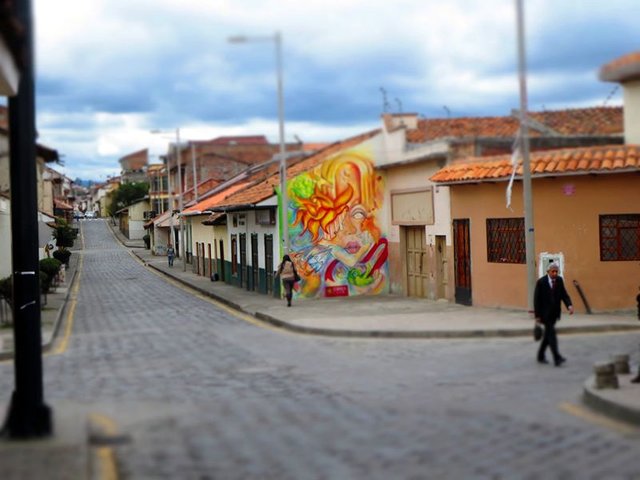
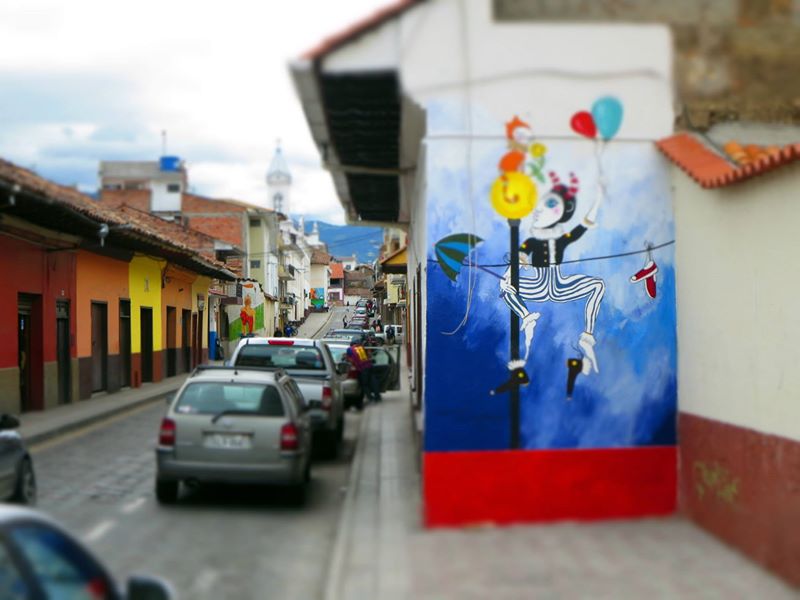
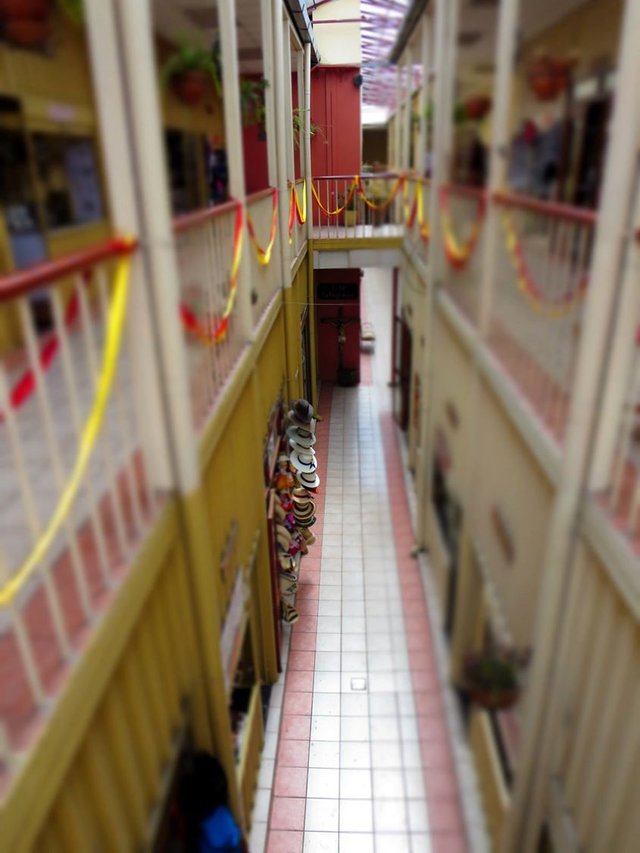
The Last Shot of the Day
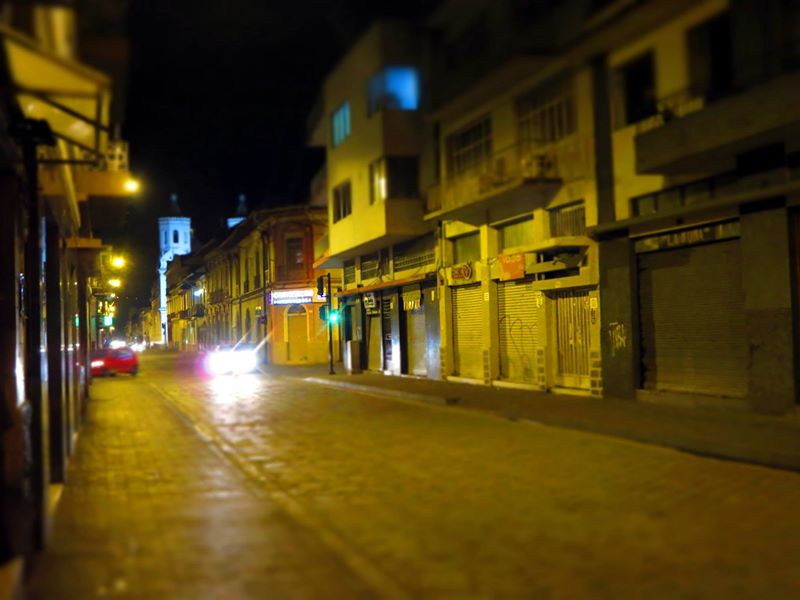
After a long day of walking around and taking pictures in El Centro, I grabbed this last shot while waiting for a cab to catch go home.
Follow me for more Steem missives like this.
I tweet from @Dr_Revelator about Cuenca, Ecuador, bitcoin, economics, politics, comedy, entertainment, and culture.
Beautiful photos! It seems Cuenca is, indeed, very colorful. When I saw the title, I thought it was going to be about Cuenca, Spain, and was expecting to see the casas colgantes and cliffs... lol
I always wanted to have a tilt-shift, but everything's out of my budget at the moment. The school where I'm doing my graduate studies actually has an exchange program in Cuenca.
Downvoting a post can decrease pending rewards and make it less visible. Common reasons:
Submit
Thank you!
Often, when we search for news/info about Cuenca, we get results for Spain and get very confused...."Where is THAT place?"
The tilt-shift filter I'm using is a feature on the camera... it wasn't very expensive a few years ago when it was new... it is a Canon Powershot elph330hs.
Thanks for commenting!
Downvoting a post can decrease pending rewards and make it less visible. Common reasons:
Submit
Ah, I shoot with an older Canon DSLR, and would really like a tilt/shift lens for architectural photography. Unfortunately, they cost about $2,000.
I wonder if anyone ever goes to Toledo, OH, in the USA and expects to see swords and castles!
Downvoting a post can decrease pending rewards and make it less visible. Common reasons:
Submit